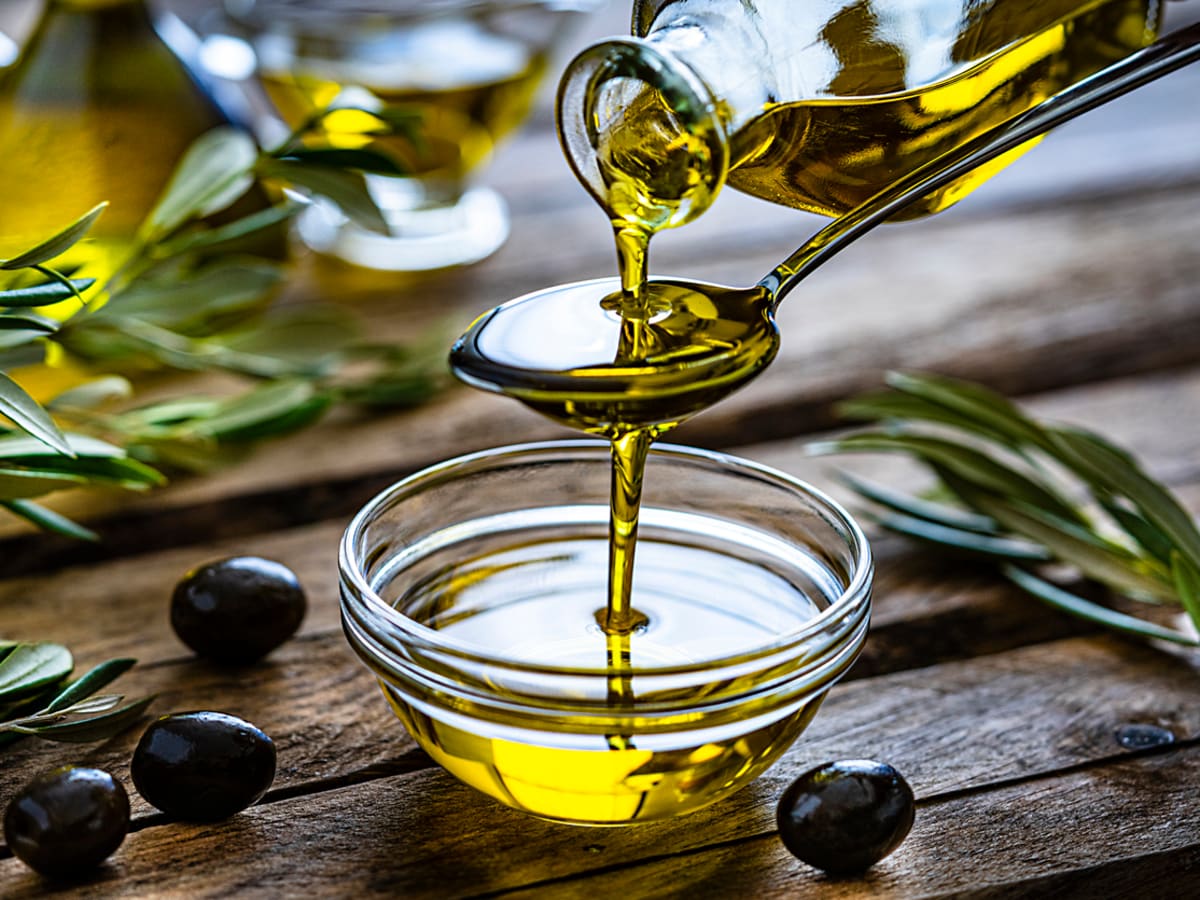When it comes to cooking, the type of fat you choose can greatly impact your health. We will explore the benefits of six fantastic fats: extra virgin olive oil, avocado oil, unrefined coconut oil, ghee, pastured butter, and tallow. These fats offer a range of health benefits and unique flavors, making them excellent choices for your culinary adventures.
- Extra Virgin Olive Oil: Extra virgin olive oil is a staple in the Mediterranean diet and for good reason. It is rich in monounsaturated fats, which promote heart health by reducing LDL cholesterol levels and lowering the risk of heart disease. Additionally, it contains powerful antioxidants that protect the body against inflammation and oxidative stress. The high smoke point of extra virgin olive oil makes it suitable for various cooking methods, including sautéing and light frying. It also works very nicely in salad dressings.
- Avocado Oil: Avocado oil is another fantastic option. It is packed with monounsaturated fats, which contribute to healthy cholesterol levels and overall cardiovascular health. Avocado oil also contains vitamin E, a potent antioxidant that supports skin health and promotes a strong immune system. With its mild flavor and high smoke point, avocado oil is perfect for stir-frying, grilling, and roasting. It also works very nicely in salad dressings.
- Unrefined Coconut Oil: Coconut oil has gained popularity in recent years due to its unique composition and health benefits. The medium-chain triglycerides (MCTs) found in coconut oil are metabolized differently than other fats, providing a quick source of energy for the body. Moreover, unrefined coconut oil is rich in lauric acid, which possesses antiviral and antibacterial properties. It’s ideal for baking, stir-frying, and even adding a hint of tropical flavor to your dishes. Great replacement for vegetable oil when baking.
- Ghee: Ghee, a clarified form of butter, has been used in traditional Indian cooking for centuries. It has a high smoke point, making it suitable for high-heat cooking. Ghee contains conjugated linoleic acid (CLA), which may aid in weight loss and reduce inflammation. Additionally, it is rich in fat-soluble vitamins like A, D, E, and K2, which play crucial roles in various bodily functions.
- Pastured Butter: Butter obtained from the milk of grass-fed cows is a source of essential fatty acids, fat-soluble vitamins, and other beneficial nutrients. Pastured butter is a good source of conjugated linoleic acid (CLA), known for its potential anti-cancer properties. While butter has a lower smoke point than other fats mentioned here, it adds richness and flavor to dishes when used in low to medium heat cooking or as a finishing touch.
- Tallow: Tallow is rendered beef or lamb fat that has been used for cooking throughout history. It is rich in heart-healthy monounsaturated fats and is a great source of fat-soluble vitamins, including vitamins A, D, E, and K. Tallow’s high smoke point makes it perfect for frying, roasting, and sautéing. It imparts a unique savory flavor to dishes, making it a favorite among many chefs.
While we’ve explored the benefits of various healthy fats, it’s essential to understand the potential risks associated with processed seed oils like:
canola oil
peanut oil
safflower oil
vegetable oil
corn oil
These oils are often extracted using hexane, a toxic chemical solvent that may leave residue in the final product.
Moreover, processed seed oils are typically high in omega-6 fatty acids, which are pro-inflammatory when consumed in excess. The Western diet is already abundant in omega-6 fatty acids, and an imbalance with omega-3 fatty acids can lead to chronic inflammation and various health issues.
Lastly, these oils are more prone to oxidation due to their storage containers and chemical structure. As these oils become oxidized, they undergo chemical changes that result in rancidity. Rancid oils have an unpleasant odor, taste, and appearance. They may develop a strong, stale smell and a bitter or metallic taste. Consuming rancid oils can be detrimental to health due to the formation of harmful compounds, including free radicals, peroxides, and aldehydes. These compounds can contribute to oxidative stress, inflammation, and various health problems when consumed regularly.
It’s important to note that moderation is key, and a balanced ratio of omega-3 to omega-6 fatty acids is essential for optimal health. However, there are already plenty of omega-6 fatty acids in our diet. So when it comes to cooking oils, choosing the healthy options mentioned above can help promote overall well-being.
Incorporating healthy fats like extra virgin olive oil, avocado oil, unrefined coconut oil, ghee, pastured butter, and tallow into your cooking can have a positive impact on your health. These fats offer unique flavors, valuable nutrients, and potential health benefits. On the other hand, processed seed oils should be consumed when they are the only option due to their negative effect on your health. By making informed choices in the kitchen, you can enhance your culinary experiences while nourishing your body.






